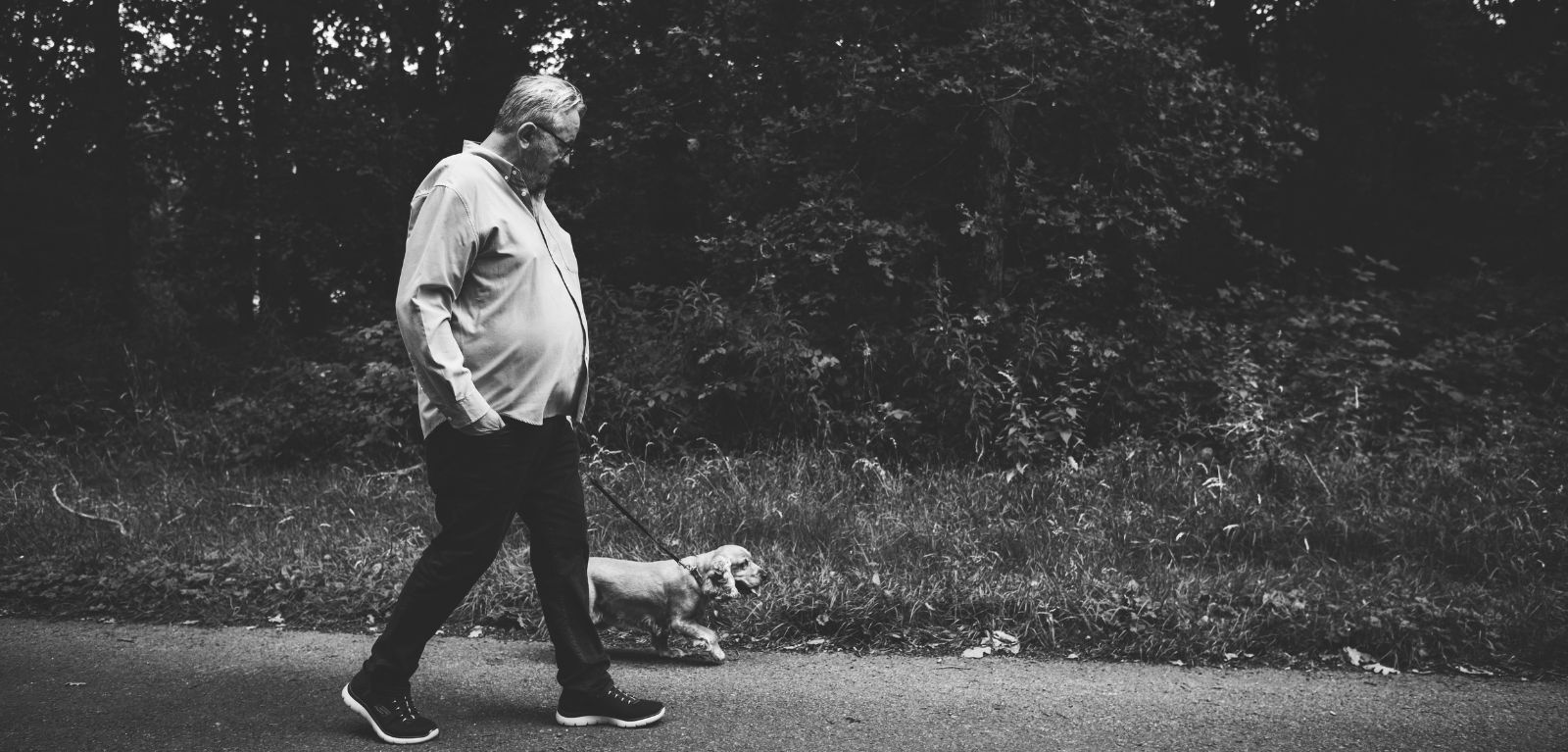From Carer to Advocate
“Queen’s gave me a lift when I had nothing left in the tank”.

When Trevor Wightman’s wife was diagnosed with cancer, his world changed overnight. He became her full-time carer, a role he embraced with love and commitment, but one that left him emotionally and physically drained. For four years, Trevor’s life revolved around hospital appointments, treatment cycles and the daily realities of caring for someone with a terminal illness. And then, just before a new online support resource for carers went live, Trevor’s wife passed away.
“It felt like being a hamster on a wheel,” Trevor recalls. “And when the treatment stopped, the wheel stopped. I didn’t know what to do next.”
What came next was unexpected: a phone call from Queen’s University Belfast.
A new chapter begins
Trevor had previously recorded a short interview for Cancer Caring Coping, a website developed as part of Queen’s research into transforming supportive cancer care. The project, led by Dr Olinda Santin, in partnership with carers and health professionals, aims to address the emotional, practical and informational needs of those caring for people with cancer.
Trevor’s video, an honest and moving reflection on his own caring experience, was shared with the project’s steering group. They were so struck by his insight and empathy that they invited him to join the group itself.
“I thought I’d just done my bit,” Trevor says. “But then they asked me to join the steering group, and that was the start of something completely new.”
From participant to partner
What began as a small role soon became a deep and ongoing relationship with Queen’s. Trevor co-hosted the official Cancer Caring Coping launch in front of more than 150 people. He began sharing his experience with nursing and social work students, helping to bring Queen’s research findings to life for future health professionals. He contributed to conferences, spoke at training sessions and even co-authored a chapter in an academic textbook about the role of clinical nurse specialists, a key focus in Queen’s research into improving cancer care pathways.
“Suddenly, I had a sense of purpose again,” he says. “Queen’s helped me find my voice.”
Making a difference
Trevor’s role at Queen’s has evolved into much more than public speaking. He now regularly sits on interview panels for nursing students, helping assess not only academic ability but also empathy, what one Queen’s colleague described as “the granny test”.
“Would I want this person caring for my granny in hospital?” Trevor explains. “That’s what I bring to the panel. I know what it’s like to be on the receiving end of care.”
One moment stands out. During an online interview, Trevor noticed a young woman clearly distressed. He asked if she would like to step away for a moment and get a drink of water. She did, and returned composed, confident and successful.
Two years later, she approached him at a student event and said: “I’m only sitting here today because of you.”
Healing through helping
For Trevor, contributing to Queen’s research and teaching did not just support others; it became a vital part of his own healing.
“I’d never seen myself as a public speaker,” he says. “But now I can stand up and talk with the best of them. Queen’s gave me the self-worth I’d lost.”
In recognition of his contribution to research impact and student learning, Trevor was named an honorary lecturer at Queen’s, a title he wears with pride (and a touch of humour about the ‘silly robes’ at graduation).
A legacy for carers
The Cancer Caring Coping website, developed through Queen’s research into improving supportive cancer care, continues to be a vital resource for those caring for loved ones with cancer. Shaped by carers like Trevor, it offers practical advice, emotional support and a sense of community.
“Carers are often invisible. But when you visit that website, you realise you’re not alone. That’s powerful.”
Trevor’s story illustrates the human side of Queen’s research impact. At a time when grief could have overwhelmed him, an invitation from Queen’s opened the door to connection, confidence and contribution, while also ensuring the voices of carers shape the future of cancer support.
“I didn’t go looking for Queen’s, but they found me. And I’m so grateful they did.”
FIND OUT MORE
The 'Cancer Caring Coping' project
Help support Queen's University's initiatives